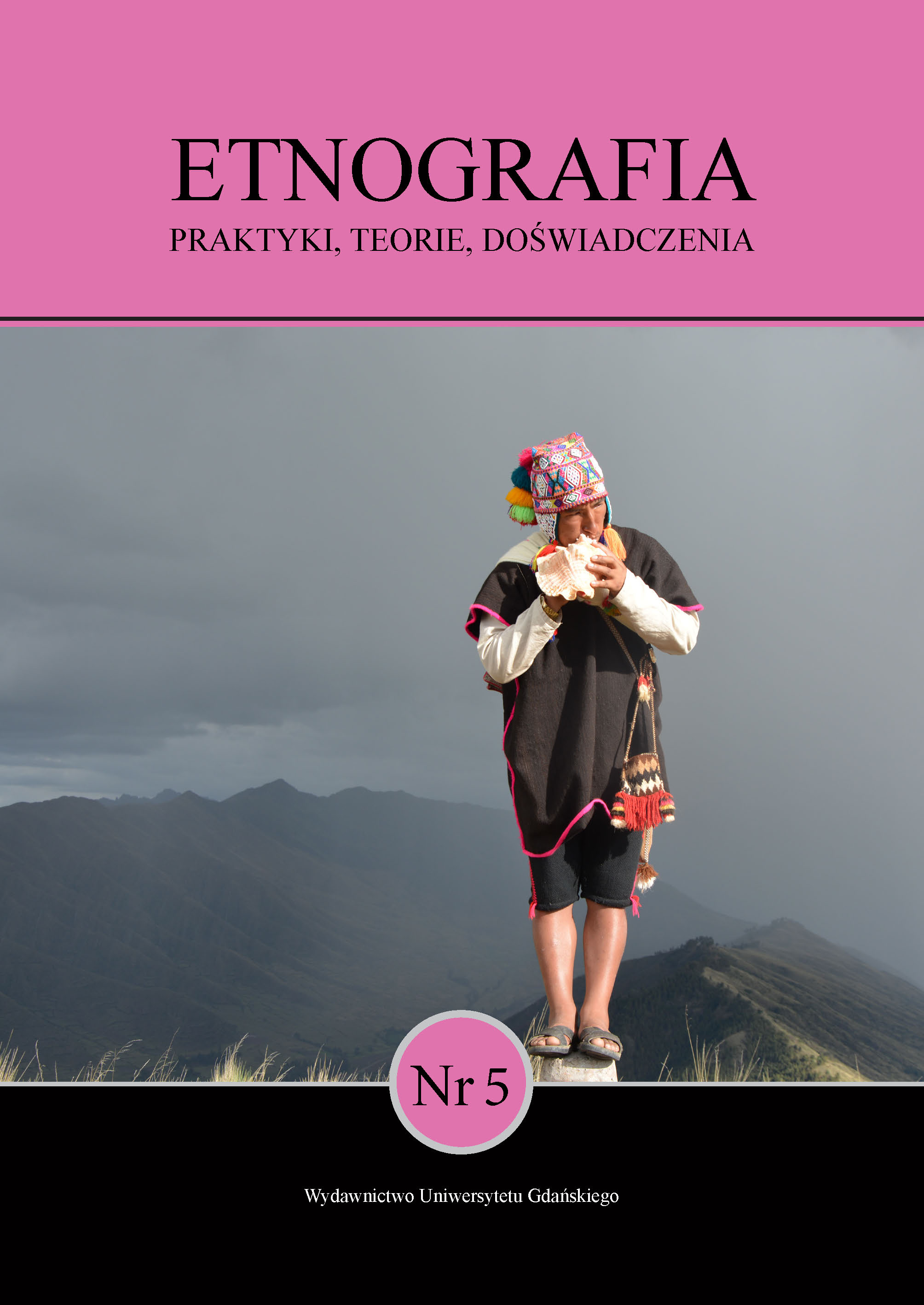From paradigm to paradox – contemporary mainstream theoretical reflections for fieldwork in lowland South America
DOI:
https://doi.org/10.26881/etno.2019.5.10Keywords:
epistemology, culture, perspectivismAbstract
This essay intends to address perspectives and reflections on nature and culture in the contemporary anthropological literature . Dialogically engaging with Ingold, Wag- ner, Viveiros de Castro, Descola and Strathern, I aim to demonstrate the implications of understanding culture as an axiomatic point of differentiation of human nature, or as re-elaboration of materiality through human action . This reflection calls us to rethink the Western scientific epistemology, along with its presupposed ontological order . Such questioning unfolds in the elaboration of the ethnographic text, which in turn is the result of a dialectical process that speaks not only of one culture, but of two, and especially of our gaze on the Other . In the ethnographic text, an anthropologist and a native are the potential locus of reproduction of their culture . Through this approach we extend the implications of epistemological concerns to fieldwork practices and to the art of under- standing other knowledge systems .
Downloads
References
Bateson, G. (1986). Mente e Natureza – A Unidade Necessária. Rio de Janeiro: Francisco Alves.
Descola, P. (2011). As duas naturezas de Lévi-Strauss. Sociologia & Antropologia, v.01.02: 35–51, http://www.ppgsa.ifcs.ufrj.br/evento/revista-sociologia-antropologia/.
Descola, P. (n/d). Más allá de la naturaleza y la cultura. Cultura y Naturaleza. Jardín Botánico de Bogotá José Celestino Mutis. Avaliable in: http://ecaths1.s3.amazonaws.com/teoriasocialcontemporanea/578647752.Descola%20mas%20alla%20de%20la%20naturaleza...pdf.
Graeber, D. (2015). Radical alterity is just another way of saying “reality”. A reply to Eduardo Viveiros de Castro. Hau: Journal of Ethnographic Theory, 5(2).
Ingold, T. (2000). The perception of the environment: Essays on livelihood, dwelling and skill. London: Routledge.
Ingold, T. (2000b). Gente como a gente: O conceito de homem anatomicamente moderno.Ponto Urbe. Edição 9, http://www.pontourbe.net/edicao9–traducoes/213–gente-como-a-gente-o-conceito-de-homem-anatomicamente-moderno.
Ingold, T. (2006). Sobre A Distinção Entre Evolução e História. Antropolítica, Rio de Janeiro,n. 20, 17–36, http://www.uff.br/antropolitica/revistasantropoliticas/revista_antropolitica_20.pdf.
Ingold, T. (2015). Introdução a O que é um animal? Antropolítica, Rio de Janeiro, 22, 129–150,www.uff.br/antropolitica/revistasantropoliticas/revista_antropolitica_22.pdf.
Ingold, T. (2012). Trazendo as coisas de volta à vida: Emaranhados criativos num mundo demateriais. Horizontes Antropológicos, Rio Grande do Sul, ano 18, n. 37, 25–44, jan./jun.
Kohn, E. (2013). How forests think: Toward an anthropology beyond the human. Berkeley: University of California Press.
Latour, B. (2009) Perspectivism: ‘Type’ or ‘bomb’? Anthropology Today, Apr. vol 25 no. 2, 1–2.
Lévi-Strauss, C. (2010). Mitológicas I: O cru e o cozido. São Paulo. Cosac & Naify.
Lima, T.S. (1996). O dois e seu múltiplo: Reflexões sobre o perspectivismo em uma cosmologia tupi. MANA, Rio de Janeiro, vol. 2, n. 2, 21–47.
Strathern, M. (2014). In: O efeito etnográfico e outros ensaios. São Paulo: Cosac & Naif.
Viveiros de Castro, E. (2002). A inconstância da alma selvagem. São Paulo, Cosac & Naify.
Viveiros de Castro, E. (2002). O Nativo Relativo. MANA 8(1):113–148.
Wagner, R. (1975). The Invention of Culture. Chicago: University of Chicago Press.
Downloads
Published
How to Cite
Issue
Section
License
Czasopismo wydawane jest na licencji Creative Commons Uznanie autorstwa-Na tych samych warunkach 4.0 Międzynarodowe.

 Academic Scientific Journals
Academic Scientific Journals








